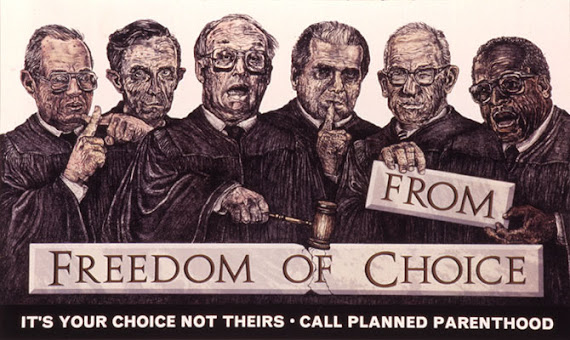
I think that we have all had the common experience of looking out and seeing a group of kids playing some sort of game. It might have been on a sand lot, in a pasture, on a vacant lot, or even on a city street, but put a group of kids together and sooner or later, they are going to choose sides, and a game will begin.
If that remembrance brings a smile to your lips, you are not alone. We can all recall similar situations in our own youth, and usually the memory is warm and pleasant. I think we look back with at least a little envy to those carefree days, free of adult responsibilities and pressure.
I mentioned this to a friend of mine once, and, knowing that I was a coach and seeking to get a rise out of me, he remarked that it would be wonderful, indeed, if adults could just refrain from interfering with those kids. It would be so much better, he explained, if they could be left to play on their own, without coaches making rules, holding practice drills, and pushing, pushing, pushing at these kids.
I understood that my friend was saying this in fun, but I will tell you honestly that it set me to thinking. If you can take any group of kids, put them together in a single place, and they, unaided, can get a game going and combine exercise with a good time, why do we need coaches?
I thought about that for some time, and I have an answer that I would like to share with you this evening.
It was my youngest son who gave me part of the answer. He is nine, and, like most nine-year-olds, he is unbounded energy wrapped up in a boy’s body. He and his friends quite often get games started and play the day away. I had been meticulous in staying out of his sports life even when I saw him doing something wrong that could have been improved by practice.
One evening, after supper, he came to me to ask a question. “Dad,” he said, “I’m having trouble sliding into bases. I get tagged every time. Can you show me what I’m doing wrong?”
Of course, I was delighted that he had asked my advice, but I asked him why he wanted to know? Wasn’t he having fun just playing with the other kids?
“Sure,” he answered, “it’s a lot of fun. But, I know I can do better. I’m doing something wrong, but I don’t know what it is. I want to be able to slide into that base and be safe every time.”
There was my answer. What my son wanted was to perfect his skill. Having fun and being with his friends was a large part of why he played. But, he also wanted to get better at it. Instinctively, he understood that he was doing something wrong, and he needed someone to help him to correct his mistake and become better at what he loved to do.
Naturally, I gave him some instruction and practice, and while he was not safe every time he slid into a base, his average did improve dramatically.
There was the answer. We need coaches because the human animal is not satisfied merely to do something; he wants to do it well; he wants to do it to the limit of is capacity.
There is also the knowledge that while some may do it on their own, very few people have the capacity to correct their own mistakes or improve their skills unless someone guides them, directs their efforts, and gives them the insight they need to go off and, with determination and resolve, learn to do better.
Nor am I speaking only of sports. Doctors constantly read and take classes even though they have practiced medicine for twenty years. Concert musicians take “master” classes to continually perfect their techniques even if they are performing regularly to packed houses. Teachers continue to take classes themselves in order to learn to better deal with the students they face each day.
The list goes on and on. Perhaps it is a characteristic of human beings that they are not satisfied all the time; that they seed and strive for perfection; that they see what can be and reach out for it. Perhaps it is also characteristic that most of us realize that we cannot do it alone; that we need guidance; that we need a direction for our efforts if we are ever to achieve our goals.
As a coach, I have seen kids come to me with enthusiasm bubbling to be unleashed; with raw talent that glittered with promise; with healthy bodies and positive minds. I have seen these same kids trip over their own feet. I have seen them in the middle of a field standing with their mouths open in disbelief when the opposing team scored because they did not know what to do.
The talent was there; the drive was there; what was missing was the direction.
The greatest, most powerful river in the world can be a source of power that will light and heat the homes of thousands, or it can be a rampaging flood that sweeps away everything in its path. The difference lies in how those waters are channeled.
That is what I see as my job; that is why we need coaches. A coach can take the human desire to excel, combined with the raw talent, and channel and direct it until we have a person who is justly proud of himself for what he has accomplished; a person who knows that he has done the best that he is capable of doing; a person who stands with confidence in himself and a respect for his talent and the talent of those around him.
It is not always an easy task. Quite often, it reaches a point where the individual feels that it is hopeless, and here, too, a coach is needed. The coach is there at that time to let the individual know that he can do it; that what he wants is within his grasp; that effort and hard work combined with knowledge can produce the results for which he is so strenuously working.
The coach is there to needle, to comfort. To infuriate, to assist, to encourage, to demand. The coach is there to gibe that single word of insight, that on clasp on the shoulder, that final shout that brings the individual to the point where he knows that his dream is within grasp; that is his for the taking; that he has worked for and earned every bit of it.
Finally, the coach is there to help the individual keep it all in perspective. To teach the player that he is not alone, but part of a group striving for a common goal. He is there to teach the player that he is art of a team, and, however good he may personally be, he owes allegiance to that team. That is not a bad lesson for anyone to take to heart, whether on the playing field or in life itself.
I can tell you that I see hundreds of boys each year and I have seen this process work time after glorious time. I have dealt with kids who stood before me and virtually apologized for their presence, and I have seen them at the end of a season with confidence in their faces and their hearts whether that season was a winning or a losing one, because they were winners, they had conquered themselves. I have seen overweight kids drop the pounds and underweight kids gain them, along with new health, vigor, and self-assurance. I have seen cocky and arrogant kids lose the false pride as they came to rely on their teammates and their teammates began to rely on them. I have seen hundreds and hundreds of kids grow and mature and flourish. I have seen them start out weak or arrogant or uncertain or untrained, and I have been privileged to see them walk away a credit to themselves, their parents, and the community in which they live.
I feel very humble indeed, to have had a part in this transformation; in this triumph of the human spirit.
Please understand. It is not I who have affected these changes. It is not I, nor any coach, who has allowed the best in that human being to come out. That credit belongs to the individual, who felt the need to learn; who had the desire and the fortitude to work for perfection; who spent the time and the sweat and the pain to gain what they have. It is not I, for no sculptor can carve a statue from stone that crumbles and flakes away.
Rather, I have been a guide along the path. I have been the coach who could supply some of the answers theses people needed and wanted; who could direct their efforts down the right pathway for the destination they had in mind; who could stand by when the going got rough to give them the little extra they needed to see it through.
Why do we need coaches? We need them because the human spirit cries out for knowledge and perfection; we need them because we are all part of humanity struggling to be the best we can; we need them to encourage and train and shout and enliven our lives as we reach out to become the best person we are capable of becoming.
If we coaches have rewards, it is in the knowledge that we have, indeed, helped; it is in working and seeing the change that our work brings about in our charges; and, perhaps most important, it is in the faces of those we have coaches who look at us with confidence and strength and ability and honor that gives us all hope that tomorrow will be as bright as it is within the power of the human spirit to achieve.








































